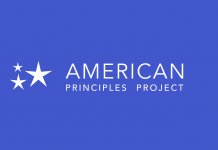Education issues were prominent in the Iowa Senate this week, and I’ll devote my newsletter exclusively to education issues this week.
One common theme in education policy in the Iowa Senate over the last five years has been empowering parents in their children’s education. Last year, because some Iowa schools refused to provide in-person learning options for students, empowering parents meant giving all families the option to send their children to school in person, full time, and ensuring the open enrollment law would mean true open enrollment for all Iowa students.
This year empowering parents means making sure they have access to the materials and content their children are being taught, and how to address sexually explicit or even pornographic material in their student’s curriculum. SSB 3079, commonly referred to as a “Parents Bill of Rights,” continues that commitment by establishing defined and consistent rules for school districts to follow as it relates to the curriculum and books assigned or available to students. It enshrines in Iowa law the fundamental right of parents to make the educational and developmental decisions for their children.
SSB 3067 also advanced through the process this week. Workforce shortages are affecting seemingly every industry, and schools are no different. This bill expands the Teach Iowa Scholar program, creates an accelerated pathway to licensure for professionals, and increases school district funding flexibility for recruitment incentives. Over the last couple years many Iowa families have seen the importance of having their children in school full time and these changes will help Iowa schools ensure qualified teachers are there to instruct those students.
In her Condition of the State address, the governor highlighted the need for more school choice in Iowa. She has proposed SSB 3080 as her vision of providing more educational choice and transparency for Iowa families. This legislation provides 10,000 Students First Scholarships.
Eligible students who withdraw from public school will receive a portion of their “per pupil” funds to help cover qualifying expenses like private school tuition or other education services and materials. These funds will be deposited into an educational savings account (ESA) each year until a student graduates from high school. Remaining funds can be used until a student is 23. The account balance then reverts to the state general fund.
The bill authorizes up to 10,000 students to qualify for these scholarships who are eligible either because their family income falls under 400% of the FPL (Federal Poverty Level), or the student has an IEP (Individualized Education Plan). Under current state law, only those families who can afford to pay for alternative education opportunities have school choice, while thousands of Iowa children whose parents cannot afford other alternatives have no school choice whatsoever.
This is a modest school choice proposal, and one that is neutral in terms of cost to Iowa taxpayers.
Finally, this week the Education committee the Senate approved the K-12 education funding package for the next fiscal year. It’s always helpful for me to step back and look at the big picture historically to get a sense of how well we are keeping our commitment to school funding. There is an annual outcry about under-funding our schools but the facts simply don’t support that view. Public education funding in Iowa has grown $1.12 billion since 2012, while the number of K-12 students has declined slightly. Simple math reveals that the state funding has kept up with the rate of inflation, plus 6% more. Yes, we are keeping our promises.
Our Senate proposal calls for $150 million of additional spending over the current year, and continues our commitment to provide sustainable, reliable education funding to schools. We also continue to help fund the transportation costs of our rural school districts. This proposal is now eligible for consideration by the full Senate, and we expect to finish this up in the next few days so our school boards can complete their budgets in time for certification.

















